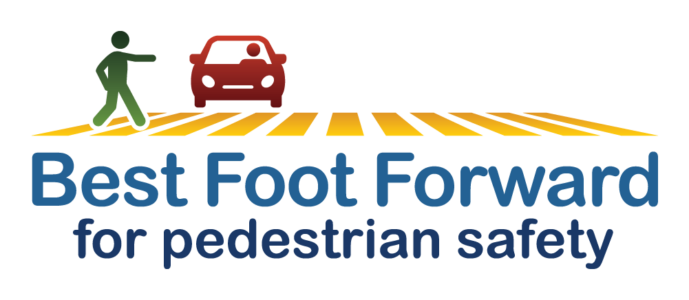With pedestrian fatalities rising nationwide, the urgent need for safer roadways has never been more…

City of Orlando four-week demonstration project on Curry Ford Road

The City of Orlando is one of three cities chosen nationwide by Smart Growth America for the Safe Streets Academy. As part of its participation, Orlando has selected the Curry Ford Road corridor from S. Bumby Avenue to S. Crystal Lake Drive to roll out a four-week demonstration project. In late March, the City of Orlando will make temporary changes in the form of bike lanes, crosswalks and other bike/ped enhancements that will remain throughout April. During this trial period, the City will analyze user behavior and consider future changes.
Orange County is working together with the City of Orlando to make this project a reality.
The Safe Streets Academy is a technical assistance program created by the Smart Growth America’s National Complete Streets Coalition. The program helps cities put their commitment to traffic safety into practice. The three selected cities – Orlando, South Bend, Ind., and Lexington, Ky., – are working collaboratively to develop strategies for improving safety for all road users.
As part of the Safe Streets Academy, each of the three chosen cities will carry out a demonstration project on a high-crash corridor, working with community members, business owners, elected officials, and other local partners to test creative new ways to improve safety.
Billy Hattaway, director of Orlando’s transportation department and chair of Bike/Walk Central Florida, submitted the city’s bid to be selected for the academy. “I’m hopeful we’ll gain additional technical knowledge and maybe some best practices,” Hattaway said of working with the other teams. “My plan is to take the learning we gain from this experience and share it with the other municipalities that make up our metro area,” he said.
Among the outcomes Hattaway would like to see is Orlando’s eventual fall from the Dangerous by Design list of most dangerous U.S. metro areas for pedestrians. “Ultimately it always comes down to choices and human behavior,” he said. “Setting speed limits or red-light cameras or whatever, we can do all kinds of things from an engineering standpoint, but if people aren’t willing to change their behavior we will continue, unfortunately to see loss of life.”
BFF will continue to provide updates on our Facebook page as the project progresses.




This Post Has 0 Comments